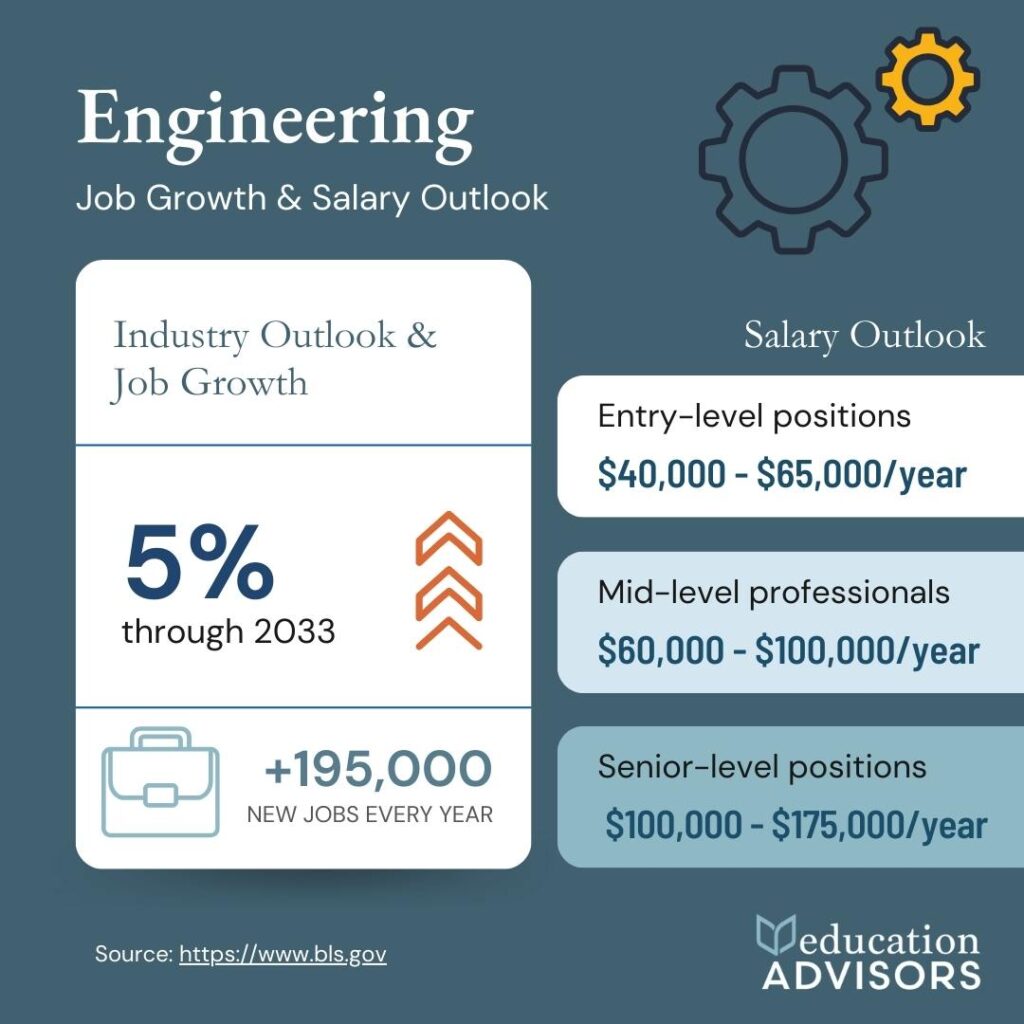
The Future of Education: AI Skills Every Graduate Needs
COLLEGE PLANNING The Future of Education: AI Skills Every Graduate Needs Find Your Program Table
Discover your future
Do you dream of designing innovative solutions, building advanced systems, or solving some of the world’s most complex problems? Engineering degree programs offer a pathway to exciting and impactful careers in industries like technology, construction, aerospace, and renewable energy. Whether you’re starting with an associate degree or pursuing advanced studies at the master’s or doctoral level, engineering programs provide the technical knowledge and problem-solving skills needed to shape the future. From designing infrastructure to developing cutting-edge technologies, engineers are at the forefront of progress. Dive into this guide to explore engineering degree options, career paths, salary insights, and industry trends.

COLLEGE PLANNING The Future of Education: AI Skills Every Graduate Needs Find Your Program Table


College Planning AI Boom: Industries on the Rise vs. Industries in Decline Find Your Program


College Planning Degrees That Will Thrive in the AI Business Era Find Your Program Table
Engineering programs vary in specialization, education level, and career focus. Here’s a breakdown:
Prepares for roles like Engineering Technician or CAD Operator.
Duration: Typically 2 years.
Focus Areas: Fundamentals of engineering, mathematics, and computer-aided design.
Required for roles like Civil Engineer, Mechanical Engineer, or Software Developer.
Duration: A four-year program offering in-depth technical and theoretical training.
Focus Areas: Common specializations: Civil engineering, electrical engineering, mechanical engineering, and computer engineering.
Prepares for advanced roles like Project Manager, Systems Engineer, or Research Engineer.
Duration: 1-2 years post-bachelor’s.
Focus Areas: Includes specialized courses in advanced mathematics, project management, and emerging technologies.
Often required for leadership positions or research-intensive careers.
Certifications such as Professional Engineer (PE) or Lean Six Sigma enhance credentials.
Ideal for engineers specializing in areas like structural analysis, process improvement, or safety engineering.
*completion times vary by institution/program
Explore More Articles
AI Boom: Industries on the Rise vs. Industries in Decline
Explore Degree Levels
Explore Degree Subjects
Engineering spans numerous industries with diverse roles and excellent growth potential. Examples include:


Role: Design and oversee construction projects like roads, bridges, and buildings.
Degree Required: Bachelor’s degree.
Median Salary: $95,890/year


Role: Develop and test mechanical devices, engines, and machines.
Degree Required: Bachelor’s degree.
Median Salary: $99,510/year


Role: Design, develop, and maintain software systems and applications.
Degree Required: Bachelor’s or master’s degree.
Median Salary:
$130,160/year.


Role: Design and develop aircraft, spacecraft, and missile systems.
Degree Required: Bachelor’s degree; master’s preferred for advanced roles.
Median Salary: $130,720/year.
The engineering field is dynamic and evolving, driven by advancements in technology and global challenges. According to the Bureau of Labor Statistics:
Engineering salaries vary based on education, specialization, and location:
Salaries are typically higher in urban areas and states like California, New York, and Texas.


An engineering degree can lead to rewarding careers in various fields, from infrastructure design to cutting-edge technology development. Whether you aim for an associate degree to start your career quickly or a doctoral program to become an industry leader, engineering provides the tools to innovate, create, and solve problems that impact the world.
You can pursue roles like Engineering Technician, CAD Operator, or use it as a foundation for a bachelor’s program.
Typically, it requires a bachelor’s degree (4 years), work experience (4 years), and passing the PE exam.
Fields like renewable energy, software engineering, and robotics are seeing significant growth.
Yes, many accredited institutions offer online engineering programs that meet rigorous academic standards.
While many roles only require a bachelor’s degree, advanced positions in management or research may require a master’s degree.
*Salary figures, job growth statistics, and career outcomes are based on national averages and may vary based on location, experience, and employer requirements. This information is for general guidance only.